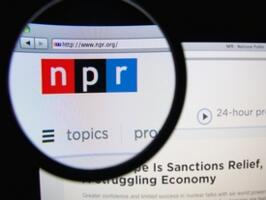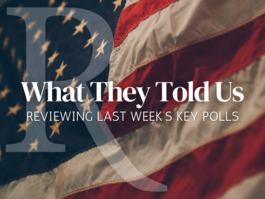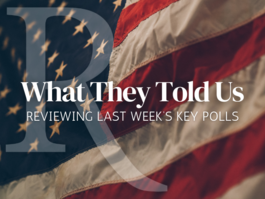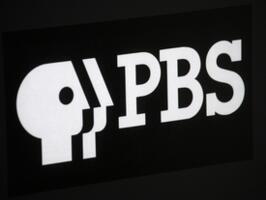What's So Scary About NPR?
A Commentary By Joe Conason
While there is much stupid behavior to be found among politicians on both sides of the aisle during the embarrassing budget debate, few incidents have been more revealing than the latest Republican attempt to defund National Public Radio. The NPR budget line is miniscule and meaningless; the current "scandal" surrounding NPR is a fake and a diversion; and the repeated complaint that public radio is "liberally biased" is likewise false and fraudulent.
It has been decades since NPR -- one of the least-slanted and best-reported news sources in the country -- depended for a significant part of its revenue on federal funding. The amount that congressional Republicans suddenly decided to ax on an "emergency" basis, around $5 million, represents not only a tiny fragment of the network's own financing but obviously an even more infinitesimal fraction of the federal deficit. So when Republican leaders claim that they are trying to be fiscally responsible by cutting NPR, while they insist on funding defense projects that the Pentagon doesn't want, the lie detector jumps off the table.
Those cuts aren't going to touch any of the "elitists" at NPR headquarters in Washington, who may or may not respect the deep wisdom of the tea party. Nor will they injure the big-city NPR journalists in New York, Chicago, Boston or St. Paul who are responsible for so much of the network's superb content. No, those cuts are much more likely to harm the hundreds of rural stations -- and their listeners -- that rely on the federal subsidy for their network dues.
Still, the Republicans could not resist reviving Richard Nixon's old grudge against public broadcasting as soon as an excuse presented itself -- in this case, yet another heavily edited "sting" video from James O'Keefe, producer-provocateur of the infamously faked ACORN videos. Posing as a Muslim philanthropist with $5 million in "secret" cash for NPR, O'Keefe's minions elicited off-color comments about the tea party and NPR's budget from a hired network fundraiser.
At this point in O'Keefe's career, it might occur to almost anyone, even a right-wing member of Congress, to hold off from rushing to judgment based on his latest emission. Indeed, a member of Congress might want to keep in mind that O'Keefe actually violated the law by invading Sen. Mary Landrieu's, D-La., office to try to tamper with her phone system -- in other words, that he committed a crime against one of their colleagues.
But even that weirdly slimy history didn't provoke much hesitation among the ranks of the right, many of whom jumped aboard O'Keefe's latest defamation campaign against NPR executives. He collected a couple of scalps, as he often does, before the gaping flaws in his journalism and methodology were exposed -- this time, by the conservative watchdogs on Glenn Beck's website, The Blaze.com. Dopey as the NPR official's remarks were, the Blaze investigation showed how O'Keefe had distorted them with deceptive cutting and framing.
Somehow nobody asked the most obvious question: If NPR were truly slanted toward the liberal side, why would a phony tape of a private conversation be needed as proof? Wouldn't the conservatives in Congress be able to prove bias in a day of hearings with tapes from NPR itself?
They've never even tried -- and the reason is they can't, because NPR works so hard to keep its news straight and its ideologues balanced. The last time anybody looked hard, about five years ago, the network was using slightly more conservative than liberal sources.
What makes conservatives in Congress so eager to deprive their constituents of a straight news source that reports accurately on what they are doing in Washington? Why should they want to ensure that the radio coverage in their districts is dominated by the likes of Rush Limbaugh? Why are they afraid of NPR?
Joe Conason writes for the New York Observer.
COPYRIGHT 2011 CREATORS.COM
See Other Political Commentary.
See Other Commentary by Joe Conason.
Views expressed in this column are those of the author, not those of Rasmussen Reports.
Rasmussen Reports is a media company specializing in the collection, publication and distribution of public opinion information.
We conduct public opinion polls on a variety of topics to inform our audience on events in the news and other topics of interest. To ensure editorial control and independence, we pay for the polls ourselves and generate revenue through the sale of subscriptions, sponsorships, and advertising. Nightly polling on politics, business and lifestyle topics provides the content to update the Rasmussen Reports web site many times each day. If it's in the news, it's in our polls. Additionally, the data drives a daily update newsletter and various media outlets across the country.
Some information, including the Rasmussen Reports daily Presidential Tracking Poll and commentaries are available for free to the general public. Subscriptions are available for $4.95 a month or 34.95 a year that provide subscribers with exclusive access to more than 20 stories per week on upcoming elections, consumer confidence, and issues that affect us all. For those who are really into the numbers, Platinum Members can review demographic crosstabs and a full history of our data.
To learn more about our methodology, click here.



